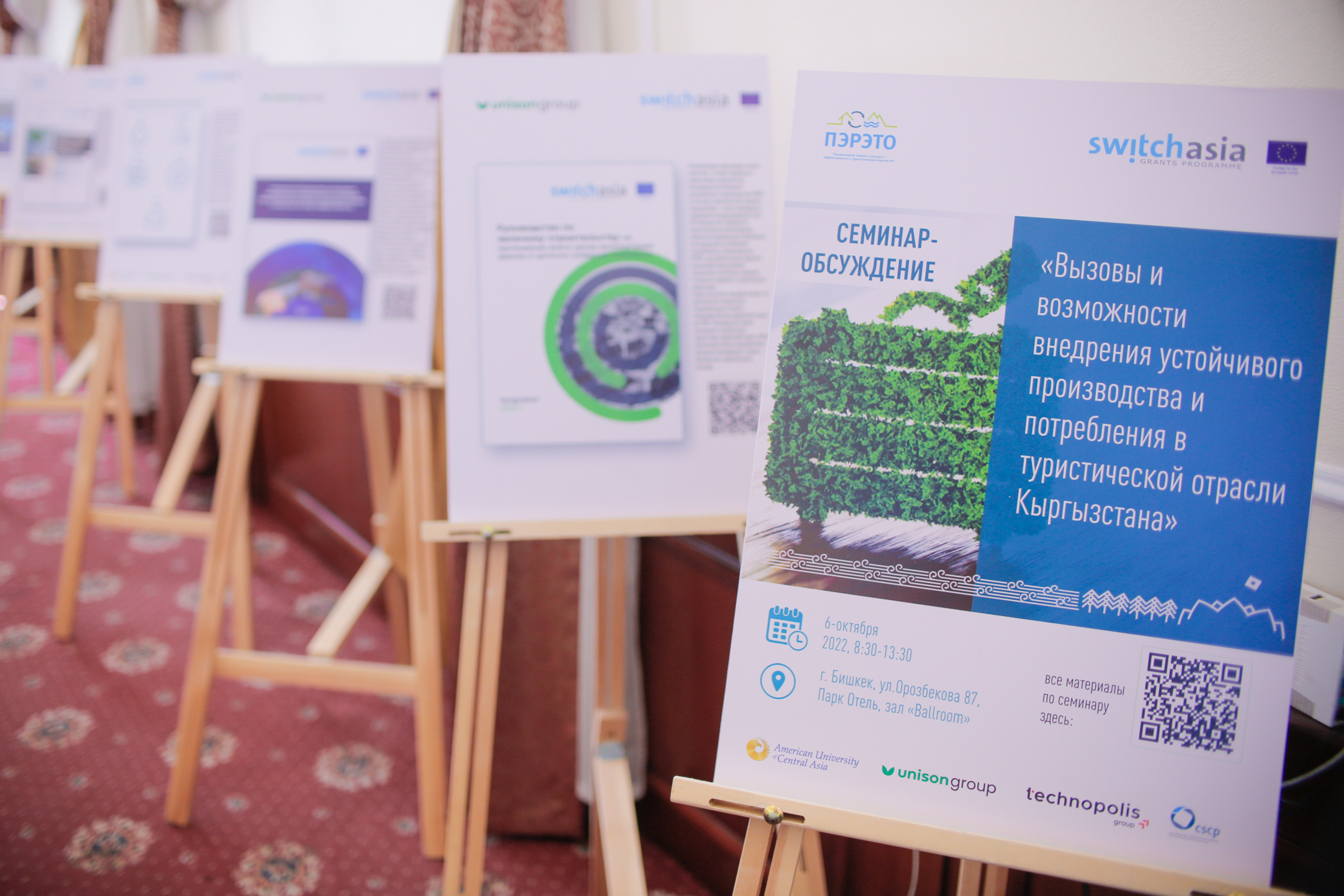"Promoting Energy and Resource Efficiency in the Tourism Industry of Kyrgyzstan" (PERETO)

The project is being implemented by the American University of Central Asia (AUCA) in consortium with partner organizations: UNISON Group (Kyrgyzstan), Technopolis Group (Belgium), Collaborating Center on Sustainable Consumption and Production - СSCP (Germany).
The project is designed for four years from 2020 to 2024, with the funding from the European Union under the SWITCH-Asia Programme. The project is supported by the Delegation of the European Union to the Kyrgyz Republic in cooperation with the Ministry of Economy and Finance, and the Department of Tourism in the Kyrgyz Republic.
The goal of the project is to promote energy security and sustainable growth by promoting sustainable production and consumption (SCP) and energy and resource efficiency (ERE) practices among small and medium-sized enterprises (SMEs) in the tourism sector of Kyrgyzstan.
Project objectives:
- raising awareness among consumers and SMEs in the tourism sector about SCP and ERE;
- Building the capacity and technical readiness of tourism SMEs to act on SCP and ERE;
- promotion of private sector initiatives aimed at developing and achieving the goals of a green economy in the Kyrgyz Republic;
- development of new green finance products adapted to the needs of SMEs in the tourism sector;
- promoting national dialogue and policy development on SCP and ERE implementation.
Expected results:
- 300 small and medium enterprises in the tourism sector to be trained and provided with technical support for the implementation of SCP practices and ERE solutions;
- improving access to green finance for the implementation of ERE solutions for small and medium-sized enterprises in the restaurant and hospitality sector;
- 50 small and medium enterprises in the tourism sector to demonstrate increased concern for sustainable development through the receipt of voluntary certification in the field of ERE, developed with the support of the project in conjunction with business associations;
- key ministries to be equipped with tools to promote SCP and ERE practices;
- consumers (tourists and visitors to SMEs) to be aware of SCP in the tourism sector;
- reduction of energy, material and other costs of resources of SMEs.
Brief project description is here